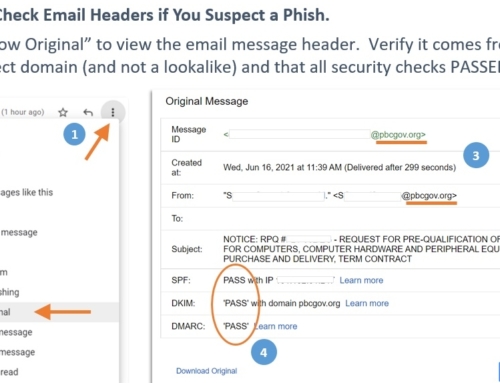What is a Data Retention Policy?
There’s a saying, “one man’s trash is another man’s treasure”. Similarly, one man’s data is a hacker’s treasure, regardless if it’s old or new. Data is liquid gold to hackers, so they go to great lengths to get it. This is dangerous, especially if you keep customer data for years on an inactive customer, then both your business and the customer are threatened if that data is breached. A data retention policy is the most effective solution to preventing your business from retaining unnecessary data.
A data retention policy, in short, is a set of guidelines your business follows to determine what data you keep, for how long, and how to properly dispose of data. These guidelines vary from business to business due to different government requirements, industry regulations, and other factors, so one data retention policy is not a one-size-fits-all. Each data retention policy should be defined and created based on the needs of your business, and not based on a template online or an example retention policy. Additionally, it’s important to create a retention policy with the help of legal and IT experts who can explain the ins and outs of your data obligations and requirements. This can assist you in creating the most effective data retention policy.
3 Reasons Why You Need a Data Retention Policy
Businesses collect a great deal of data on a daily basis that must be backed up or stored in a secure, protected location. A data retention policy will cover these details on what, how, and why of retaining data. The idea of purging data may make you uneasy and deter some businesses from adopting a retention policy. Still, not all data should be kept forever and critical data shouldn’t be discarded prematurely. Discarding unnecessary data and retaining essential information is key to the success of any business, and there are several more benefits to adopting a retention policy as well.
1.) A Data Retention Policy Helps Save Business Resources
Keeping all your data forever is not an optimal use of business resources. Business-grade backup solutions usually have a large storage capacity, but this does not mean all your data should be kept forever (or for unnecessarily long periods of time). For example, backup solutions should be optimally used by retaining necessary data, not the data of an inactive customer. It can be tempting to keep data because of “what ifs” and “you never know”, but that mentality can cost your business a lot in the long run. When expired data is properly disposed of you will reduce the storage space needed on primary systems and backups, reduce the scope & impact of potential data breaches, and you will save time and money by not having to manage and maintain thousands of old files.
2.) A Data Retention Policies Add Layers of Security
Data breaches are extremely costly, not just because it costs on average $180 per breached record, but the more data you have, the larger the scope of any potential data breach. The larger the scope, the more people are affected, which directly affects your brand reputation, customer loyalty, legal consequences, and more. A data retention policy can help soften the impact, prevent, or reduce the risk of a data breach happening, despite cyber incidents being inevitable. It can do so because suppose you retained the records of 100 inactive customers. In the event of a data breach, your company would incur an additional $18,000 in costs because your business had not disposed of the old customer data, causing damage to your business and those inactive customers. However, if you had implemented a data retention policy, the data breach and extra costs would have been avoided. Adding a data retention policy can prevent these possibilities and add an additional layer of security to your business.
3.) A Data Retention Policy Ensures Legal & Industry Compliance
To ensure your business is protecting those involved such as customers and associated partners, laws exist to ensure essential data is retained and outdated information is discarded. As an example, the retention policy for a medical practitioner would comply with HIPAA rules. HIPAA is a set of regulations for a medical practice that, in part, “requires appropriate safeguards to protect the privacy of protected health information”. For this reason, it’s critical to understand the laws in your state or country, as well as the standards of your industry, so you can establish a data retention policy that will help your employees comply with legal obligations.
Conclusion
Data is the lifeblood of any business, so some may think that all data must be kept for “what if” scenarios. Long term, this approach can be a drain on resources, create excess risk for your business, and even lead to potential legal problems. A data retention policy will instead preserve resources, improve security, and ensure your business stays compliant with its legal & regulatory obligations. Adopting a data retention policy will only enhance your business and not take away from it.















